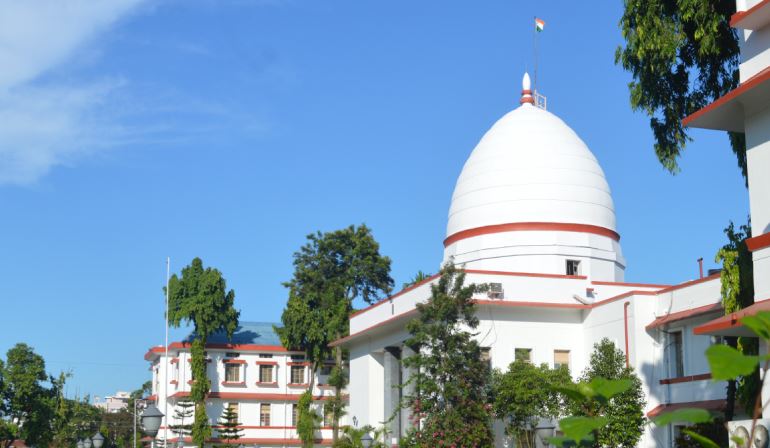Guwahati: Observing that arresting a large number of people in the crackdown against child marriage created “havoc in the private life of people”, the Gauhati High Court has said there is no need for custodial interrogation of the accused in such cases.
The court also rapped the Assam government for slapping stringent laws like the Protection of Children from Sexual Offences Act, 2012 (POCSO) and rape charges on child marriage accused, and stated that these are “absolutely weird” allegations.
Hearing a batch of petitions by a group of accused for anticipatory bail and interim bail, Justice Suman Shyam allowed all the petitioners to be released on bail with immediate effect.
“These are not matters of custodial interrogation. You (state) proceed as per law, we have nothing to say. If you find somebody guilty, file a chargesheet. Let him or her face trial and if they are convicted, they are convicted,” the judge said.
These are not cases related to Narcotic Drugs and Psychotropic Substances (NDPS), smuggling or stolen property, he said.
“This (arrest) is causing havoc in the private life of people. There are children, there are family members, there are old people. This may not be a good idea to go for (arrests), obviously it is a bad idea,” he observed Tuesday.
Till February 14, altogether 3,031 people have been apprehended against registration of 4,225 child marriage cases. The crackdown had started February 3 with 4,004 FIRs.
Justice Shyam told Additional Public Prosecutor D Das that the state government does not even have space in the jails and suggested that the administration come up with bigger prisons.
When the government advocate pointed out that cases were registered under non-bailable charges under POCSO Act and rape (IPC Section 376), Justice Shyam said, “What is the POCSO here? Merely because POCSO is added, does it mean the judges will not see what is there?”
The high court is not acquitting anybody and nobody is preventing the government from investigating the cases of child marriages, he added.
“Why Section 376 (of IPC)? Is there any allegation of rape here? These are all weird allegations, absolutely weird,” Justice Shyam observed.
The judge then sought the opinion of senior advocate Angshuman Bora, a well-known criminal counsel present in the courtroom for the hearing of a separate case, on the largescale arrests of child marriage accused.
Bora said, “They are not dreaded criminals. At this stage, they (state) can file the chargesheet and subsequently when the matter comes up in the court, the matter will be decided as per the law.”
He also stressed that the message against child marriage can also otherwise be given by filing the chargesheet and sensitising the people, but “not by arresting everyone”.
Justice Shyam further asked, “What do you get by custodial interrogation of these people? Either he has abetted or he has not. Either it’s a case of child marriage or it is not. For that, is it necessary to have custodial interrogation? What is the idea behind this?”
In the case of Moulana Sajahan Ali who allegedly facilitated a child marriage, the public prosecutor said he was unaware of the police idea behind his arrest.
“The accused person was caught red-handed. Maybe he was performing the marriage and at that time he was arrested,” Das said.
Ali’s counsel H R A Choudhury pointed out that as per the FIR, the marriage took place in 2021, and asked how he was caught red-handed now.
Justice Shyam said, “What do you (Das) have to say? We will release him on bail. These are not matters for sitting. If marriage (is) taking place in violation of statutory provisions, law will take its own course. That we have nothing to say.
“The punishment is two years and these are matters which have been happening since times. We will only consider whether immediate custodial detention is required or not.”
PTI
